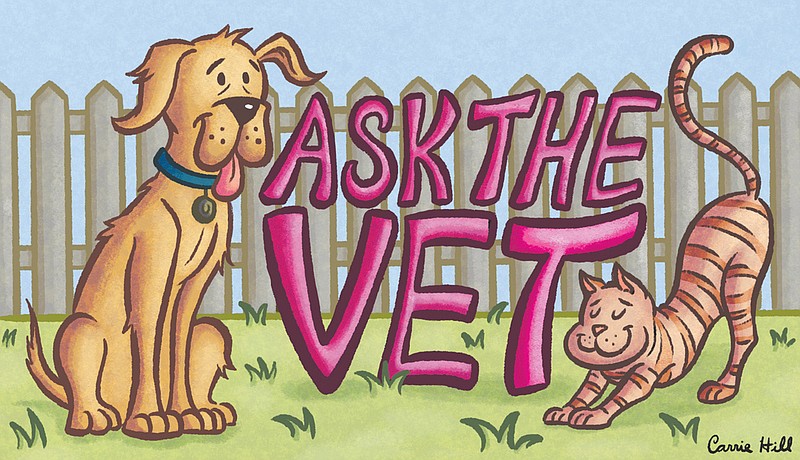Q: We have two dogs: Tiny, a mixed-breed dog who weighs less than 10 pounds, and Major, a large shepherd mix. Major has lovely teeth and gums, but Tiny has always had dental disease, even though his veterinarian cleans his teeth every year. We've seen this pattern in the past with our other dogs.
Is dental disease more common in small dogs than large dogs? If so, why?
A: Yes. As early wolves were domesticated and some dogs were gradually bred down into lapdogs, their bodies and jaws got smaller, but their teeth did not become proportionately smaller.
Therefore, today's small dogs' relatively large teeth are crowded into little mouths, and their diminutive jaws hold disproportionately less bone to support those big teeth.
In addition, small-breed dogs more often retain their baby teeth than large breeds. A baby tooth and an adult tooth sharing the space allotted to a single tooth increases overcrowding.
If that's not enough, many small dogs are intentionally bred to have a malocclusion that further crowds teeth and impairs dental health. The most common effect is an underbite, with the lower jaw protruding in front of the upper jaw. Popular small-breed dogs with an underbite include the Boston terrier, French bulldog, Lhasa apso, Pekingese, pug and shih tzu.
All of these factors promote dental disease through food retention in the teeth, increased plaque deposition and more gum inflammation.
In a recent review of 3 million dogs comprising 60 breeds averaging 5 years old, periodontal disease was diagnosed in 18.2%. It was more prevalent in dogs under 33 pounds than in those over that weight. In fact, periodontal disease was diagnosed more than five times as often in dogs weighing less than 14 pounds than in dogs over 55 pounds.
Continue giving Tiny and Major excellent dental care to ensure that each has a pain-free mouth, sweet breath and a longer, healthier life.
Q: I'm considering adopting Hope, a 1-year-old cat who tested positive for the feline leukemia virus. She's healthy now, but I know from your column that she may get sick in the future.
If I could buy pet health insurance for her, I would be more likely to seek out the best treatment if her health worsens. However, I've been unable to find insurance that covers pre-existing conditions.
Should I still adopt her? I believe I'm meant to offer her a peaceful life and would appreciate your advice.
A: I scanned the internet and also was unable to find pet health insurance that covers pre-existing conditions. That's not surprising, given how insurance works.
Still, I am happy when my clients have pet health insurance because I know financial constraints won't force them to make distressing decisions.
Before buying insurance, the buyer should read the policy closely to avoid unpleasant surprises later. The buyer can also ask the company to review the pet's medical records before or soon after the policy is issued and state whether the pet has any pre-existing conditions that will limit coverage.
An alternative to buying insurance is to self-insure. Start a savings account for Hope, and each month, deposit the same amount of money you'd spend for insurance premiums.
If Hope needs special care, money will be available. If she remains healthy throughout her life, as many leukemia-positive cats do, you'll have money to put toward the next cat you rescue.
Should you adopt Hope? I think the answer is in your question: "I believe I'm meant to offer her a peaceful life." Hope is certainly a fortunate cat to have found you. I wish you many happy years together.
Lee Pickett, VMD, practices companion animal medicine in North Carolina. Contact her at
vet@askthevet.pet
